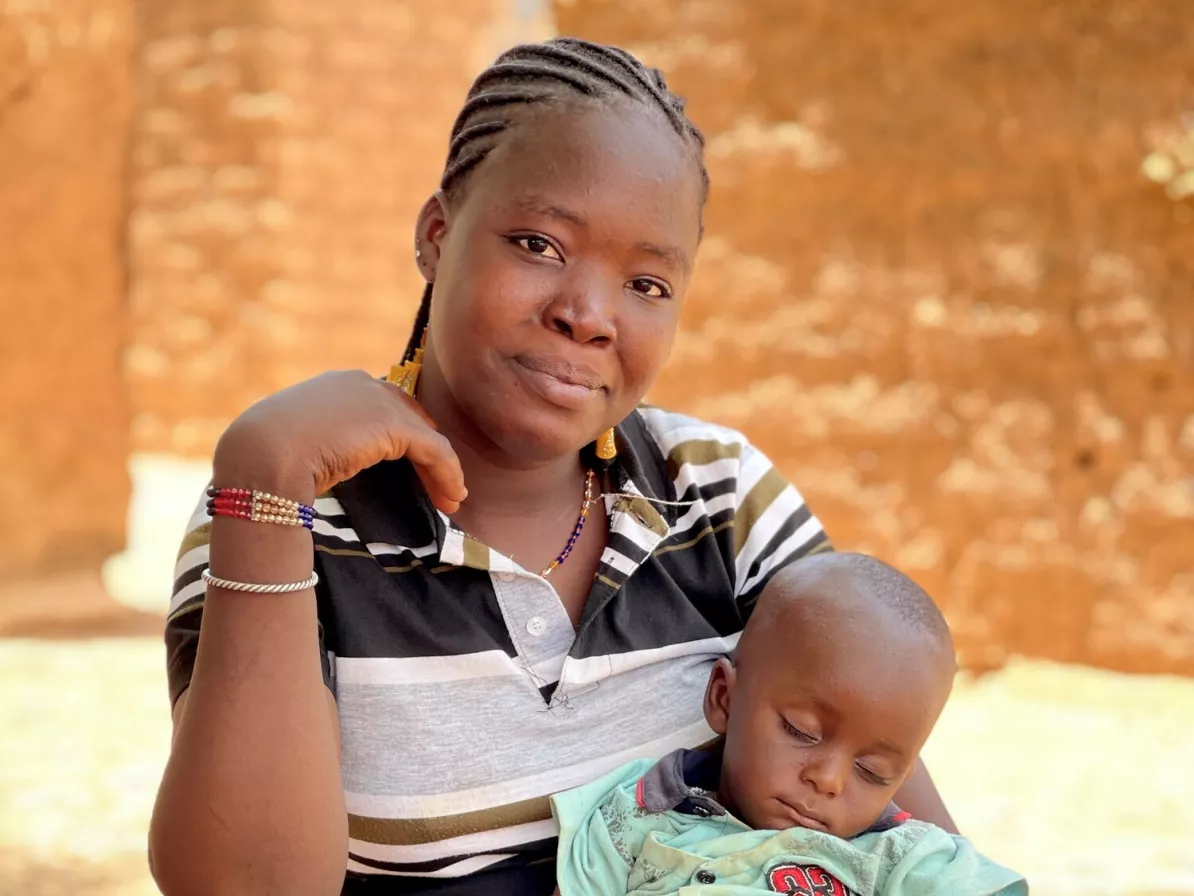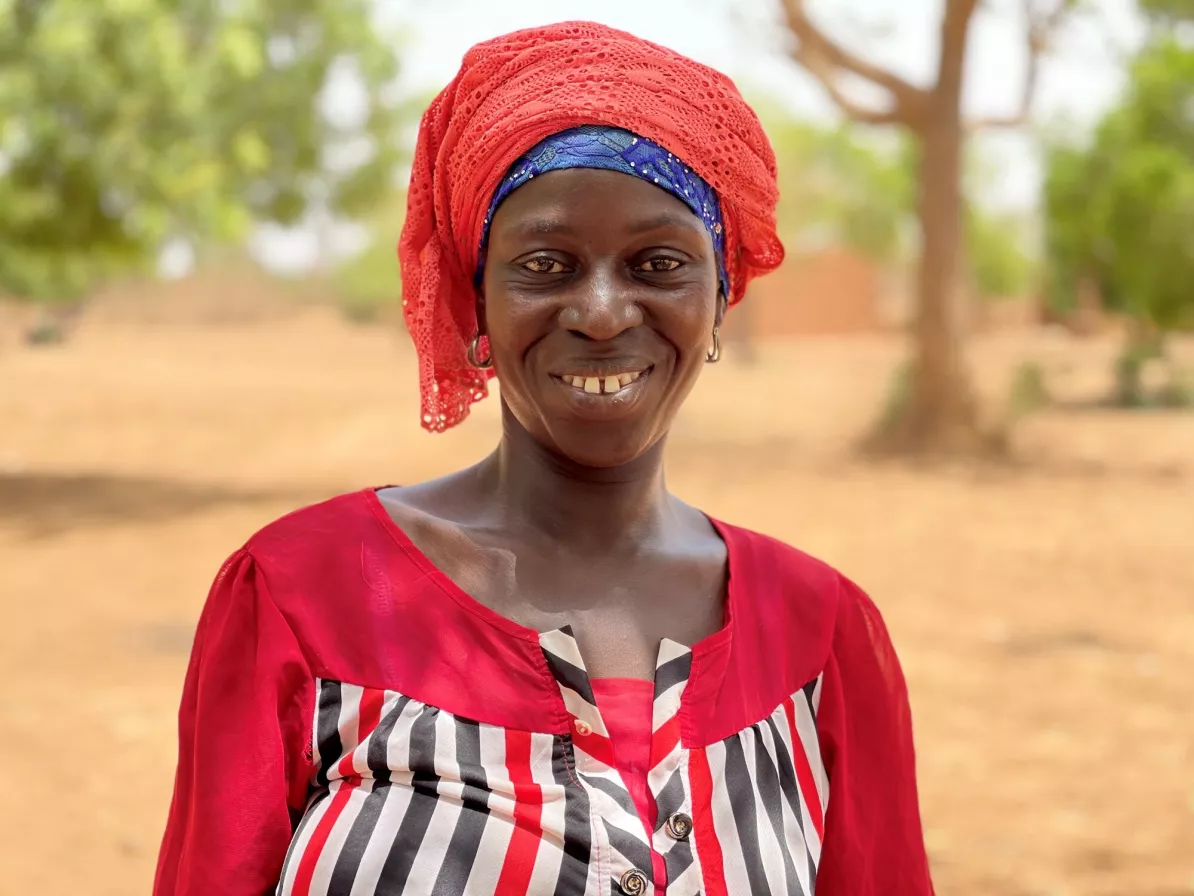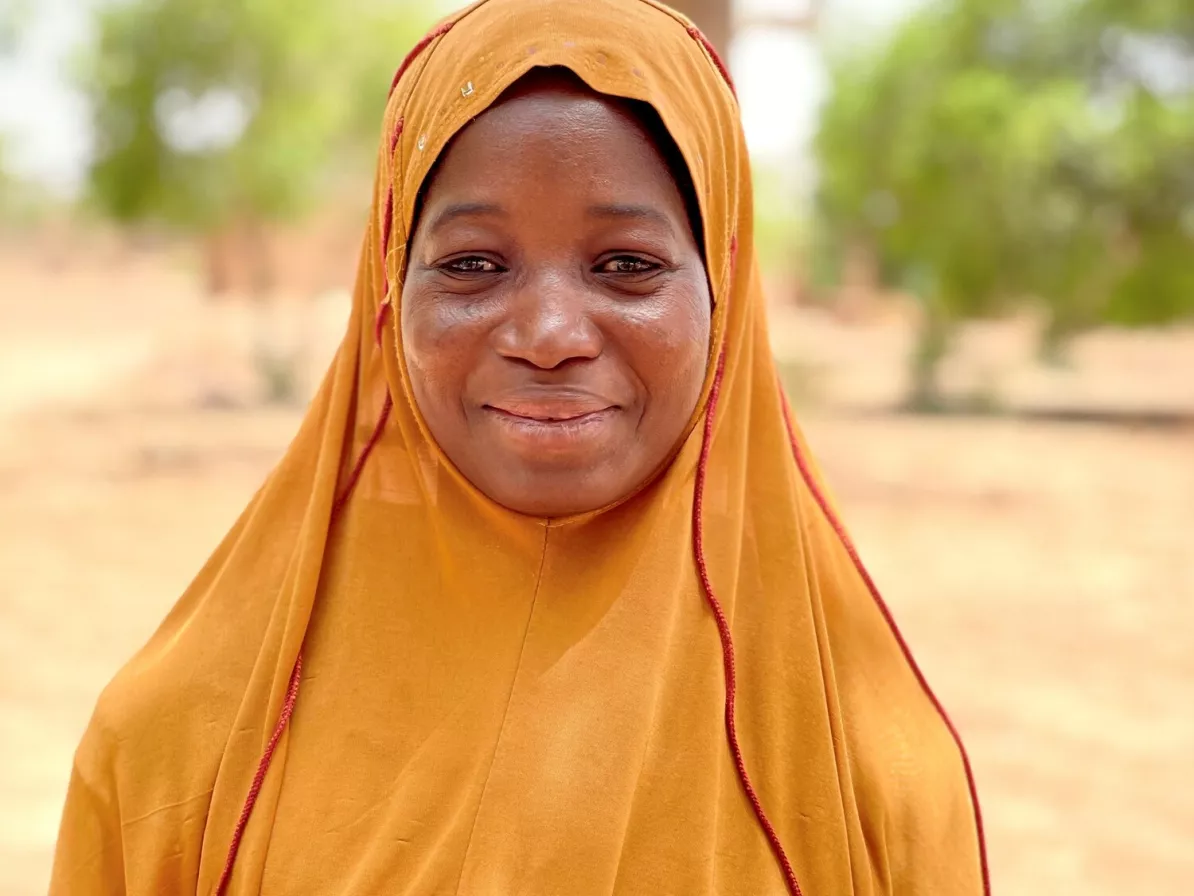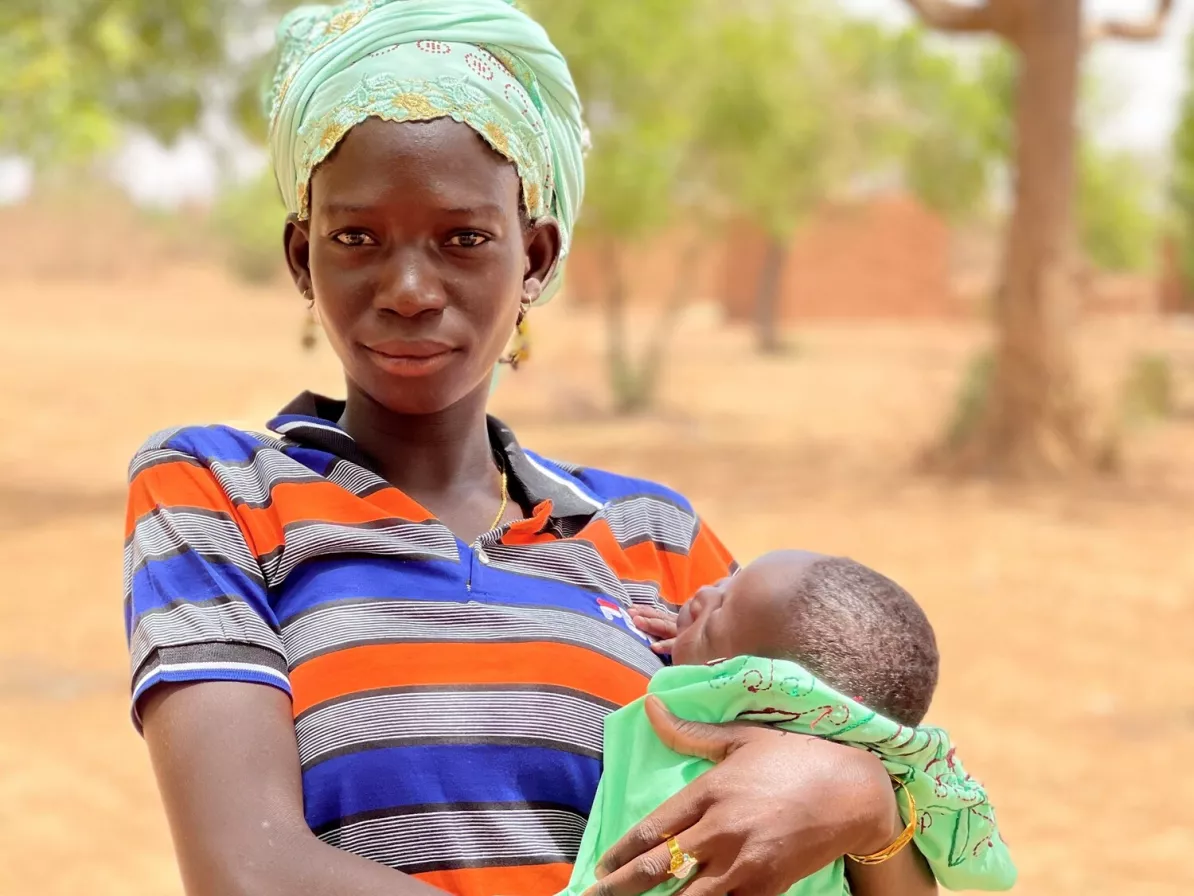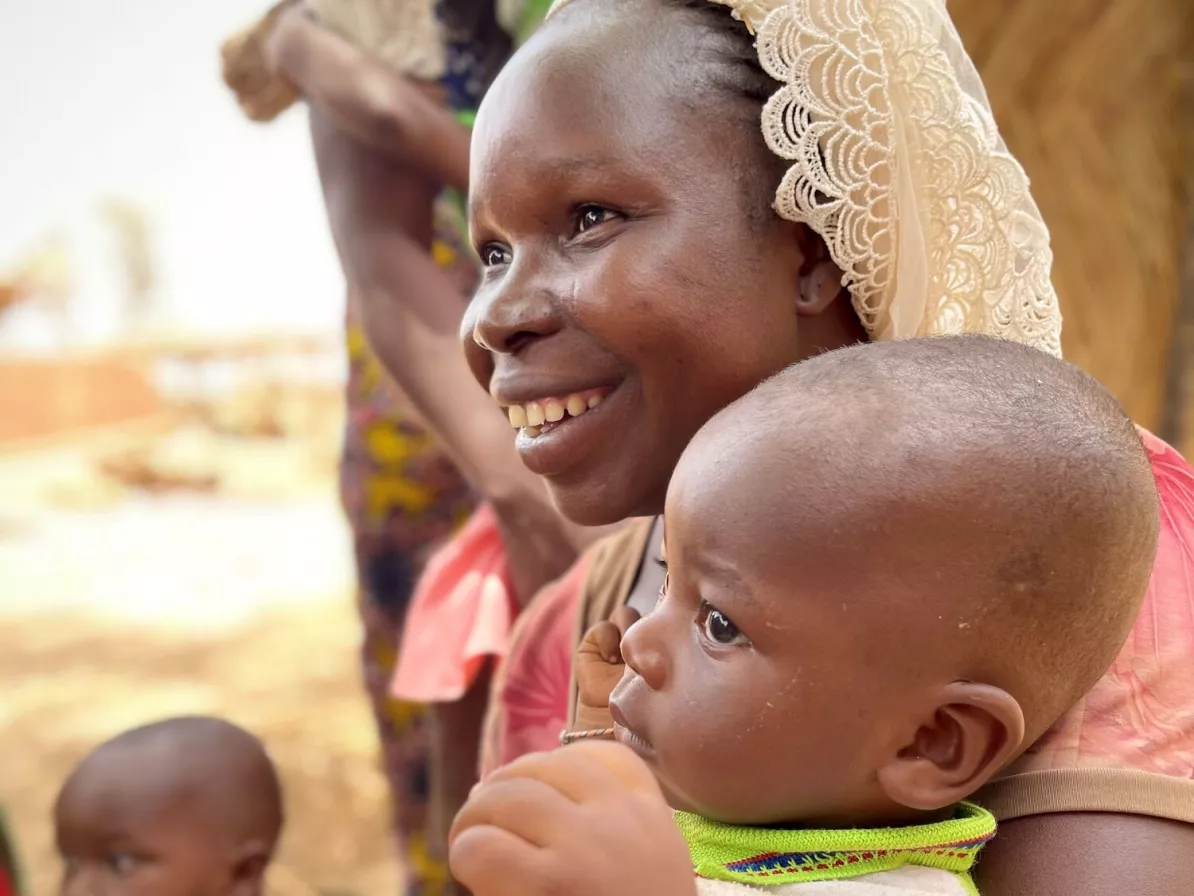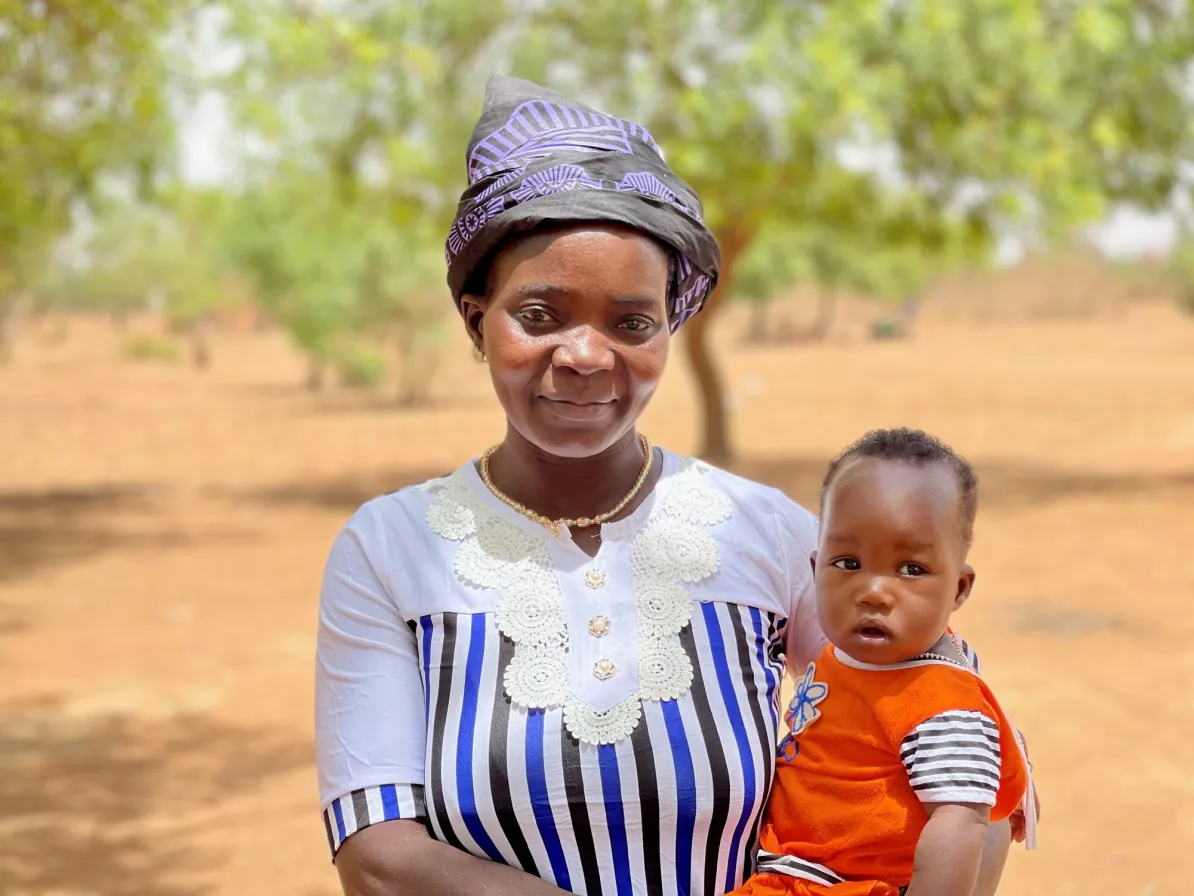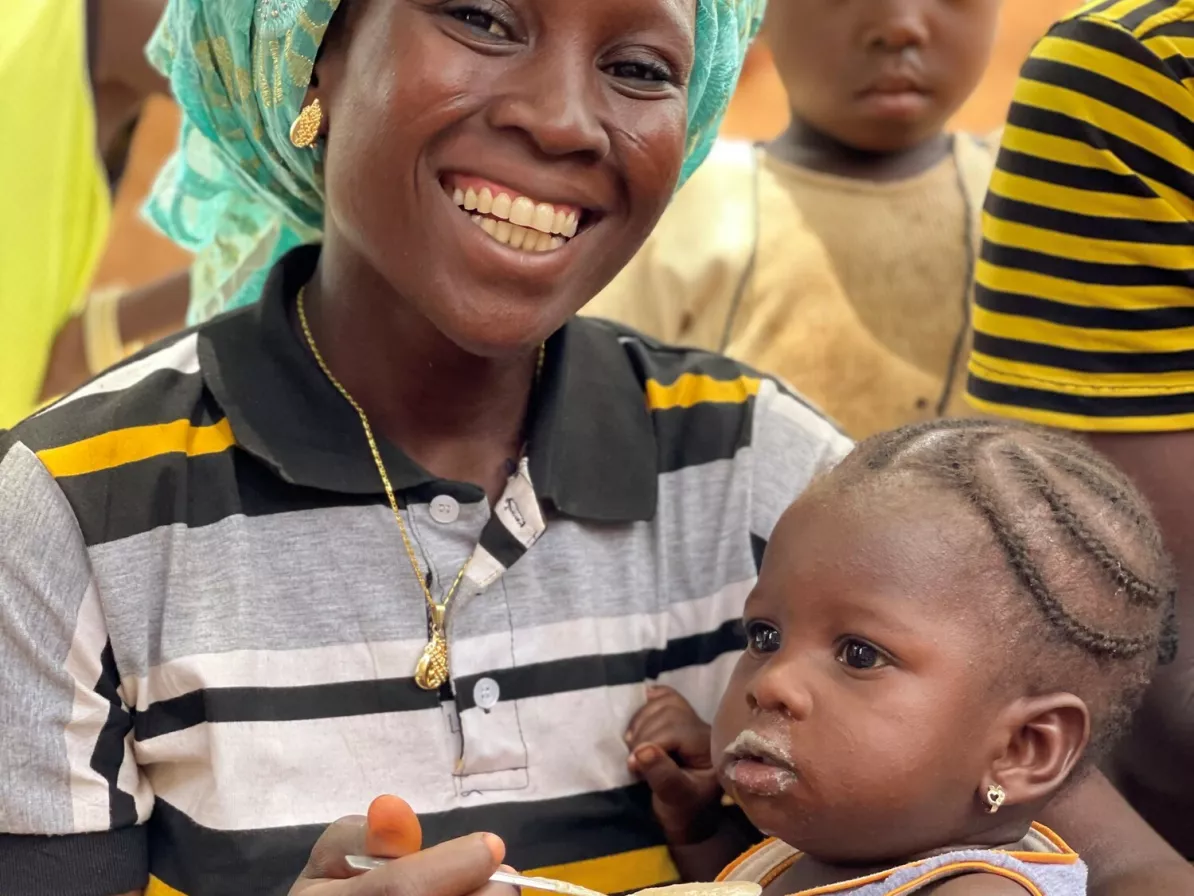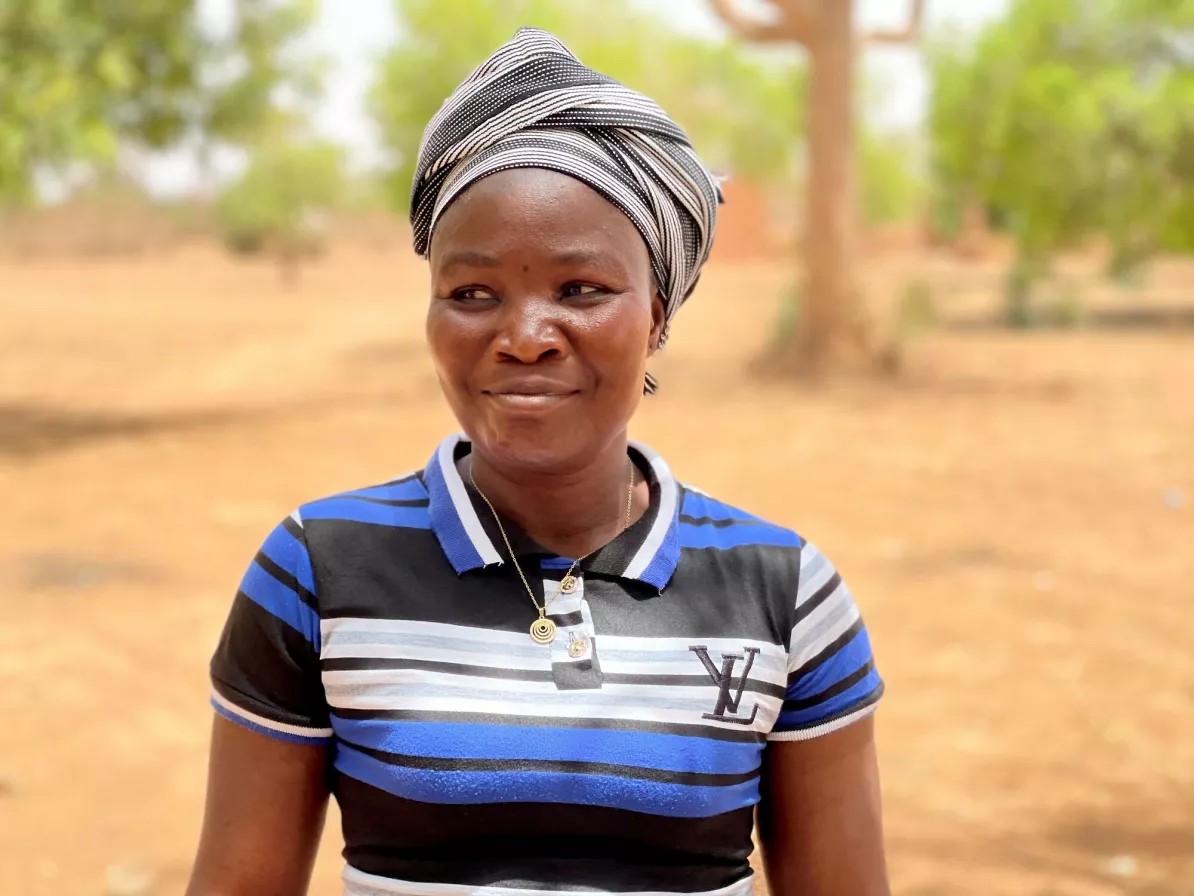Saving babies’ lives, mending relationships
Local communities and displaced people in Burkina Faso come together to reduce infant mortality.
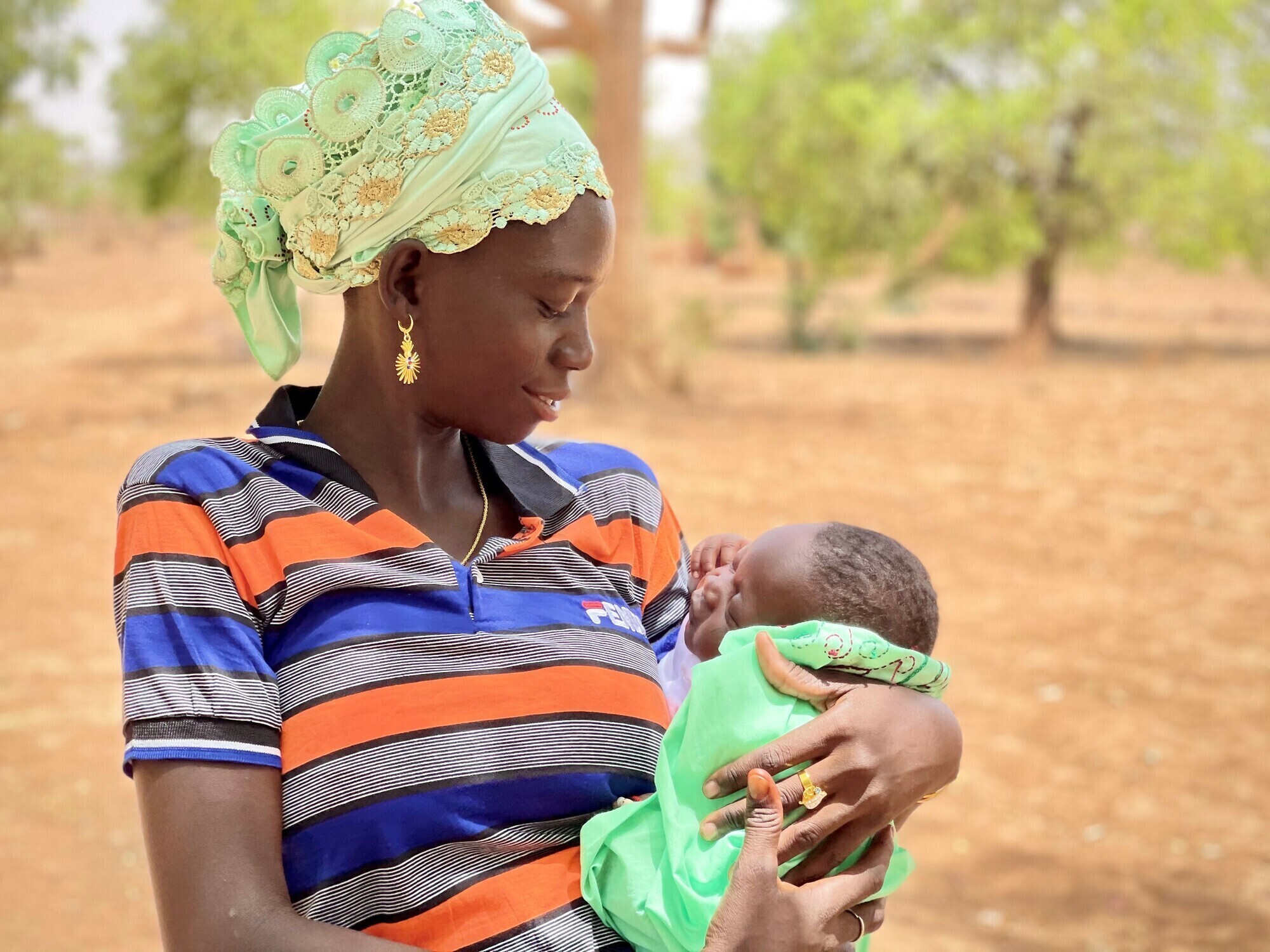
The earth is cracked and dusty beneath the dry season’s scorching sun. Few leaves remain on the lonely trees that dot the arid landscape. Even in normal times, farmers in this region of Burkina Faso must build shaded spaces for their livestock to survive the heat. They need to carefully plan and store food to make it through the long months of this lean time.
Today the pressures of conflict and migration are making the situation more dire.
“These have been hard years for our communities,” says Naaba Tissé, a traditional chief in Boussouma, Burkina Faso. Tissé looks over the parched farms and mud brick homesteads scattered across the sunbaked plateau below his home. “The violence from the north has made many people flee, and we have welcomed them into our homes and communities.”
In many villages, he says, displaced people now outnumber locals.
“We had challenges before, but now all things … food, water, schools, health care and land, are being divided among more people. It is getting harder for families to get by and even harder to keep peace.”
A civil war in neighboring Mali and armed group activity has spilled into the north and east of Burkina Faso and displaced more than a million people within Burkina Faso.
In 2020, the official number of internally displaced people in Burkina Faso nearly doubled, leading the United Nations to identify this as one of the fastest growing displacement crises in the world.
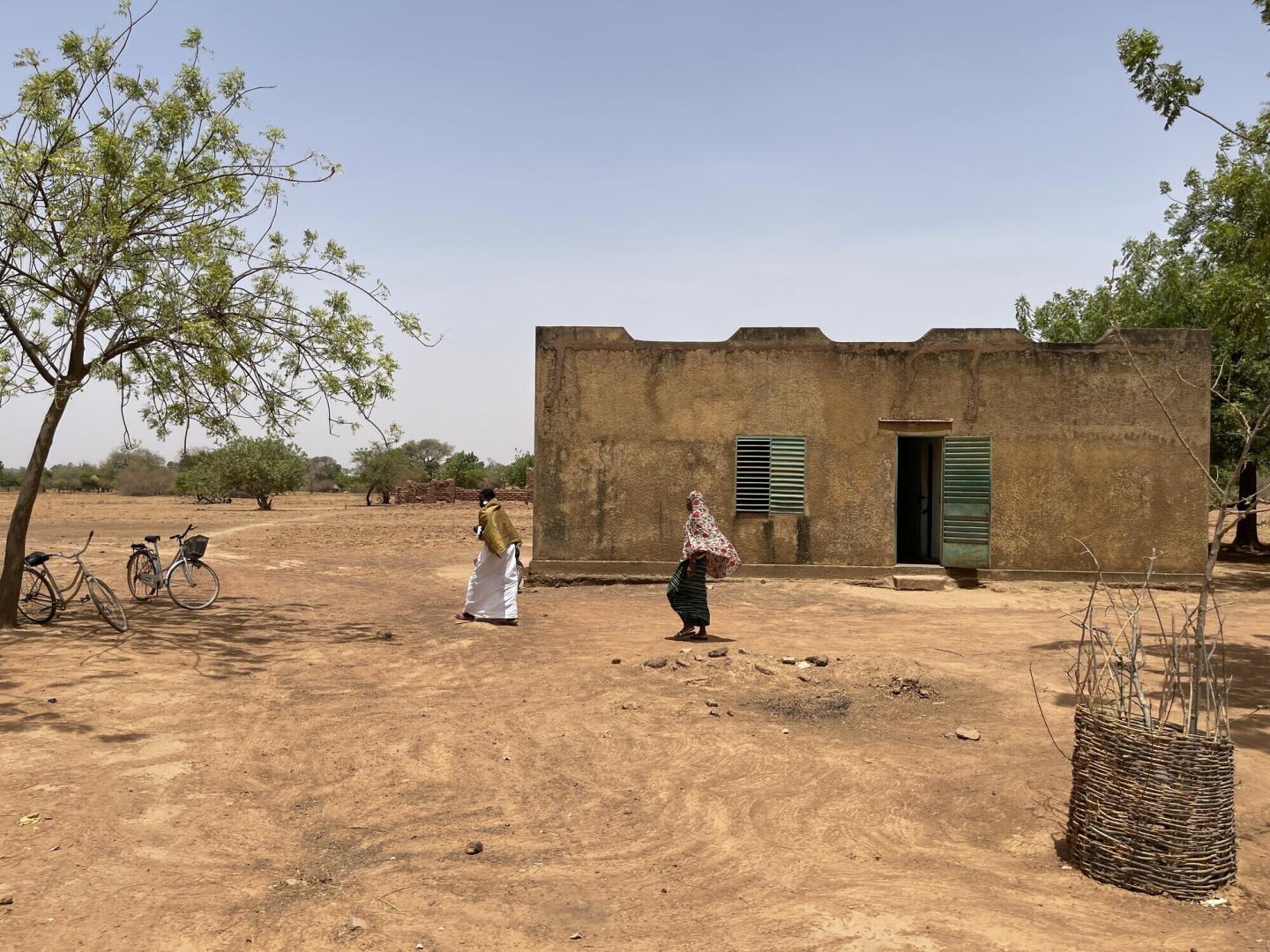
Kaya and Boussouma communes (similar to counties) host some of the highest numbers of displaced people within the country in proportion to their population.
Here, MCC has been supporting local interfaith partner Action Citoyenne et Communautaire pour la Résilience et le Développement (ACCORD, a French acronym meaning Citizen and Community Action for Resilience and Development) to improve maternal and child health.
Our children rarely get sick or malnourished anymore as they did in the past, and child deaths are very rare now.”
Aminate Ouedraogo
community health worker
“The lean seasons have gotten longer and harder for us,” says Fatoumata Ouedraogo, a mother in the program, as her son Youba sleeps contentedly on her lap. “Before the displacement, we had enough to get through the lean seasons. But here everything was so expensive, and it was hard to survive. Many children were left with only corn flour and dried leaves during the lean months. Many children were getting sick, and some were dying.”
ACCORD was founded in 2010 by three university classmates from Kaya who wanted to find solutions to community problems that could bring people of different religions and ethnicities together. Their first MCC-supported projects were in peace education. However, as the conflict accelerated and the health and nutrition in the area deteriorated, they felt that these urgent needs could not go unaddressed.
The community maternal and child health program began in 2018, adapting a care group model of women’s support groups that MCC had started using in Kenya, Tanzania and Somalia.
The project grew rapidly. It now covers 37 villages and reaches 17,003 participants in Burkina Faso, primarily through twice-monthly meetings of 330 mothers’ care groups.
“Many efforts that try to help people end up tearing people apart by creating resentment between host communities and displaced people,” notes Aminate Ouedraogo, a community health worker and volunteer leader in the MCC-supported program. “This project has been different. It brought people together to save lives. Our children rarely get sick or malnourished anymore as they did in the past, and child deaths are very rare now.”
Infant mortality in the participating communities has plunged by 83% since the project started in 2018, even as the security and economic situation deteriorated. This translates to 26 fewer child deaths per year across these communities.
This decline in child deaths was so significant that the participating health clinics won an award from the Ministry of Health for some of the biggest sustained improvements in infant mortality seen in the country in recent years.
These gains were not made by building new clinics or expensive new medical services. Instead, the project focused on supporting mothers, families and communities in maximizing their resources to improve the nutrition and health of mothers and children.
“The impact has been so clear and powerful that it brought the whole community together,” says Gregoui Sawadogo, a Catholic priest who participated in the program. “Locals and displaced people, Catholics and Protestants, Muslims and Christians, health workers and traditional healers. Everyone. When we could all see that working together was saving children’s lives, how could we not come together for this?”
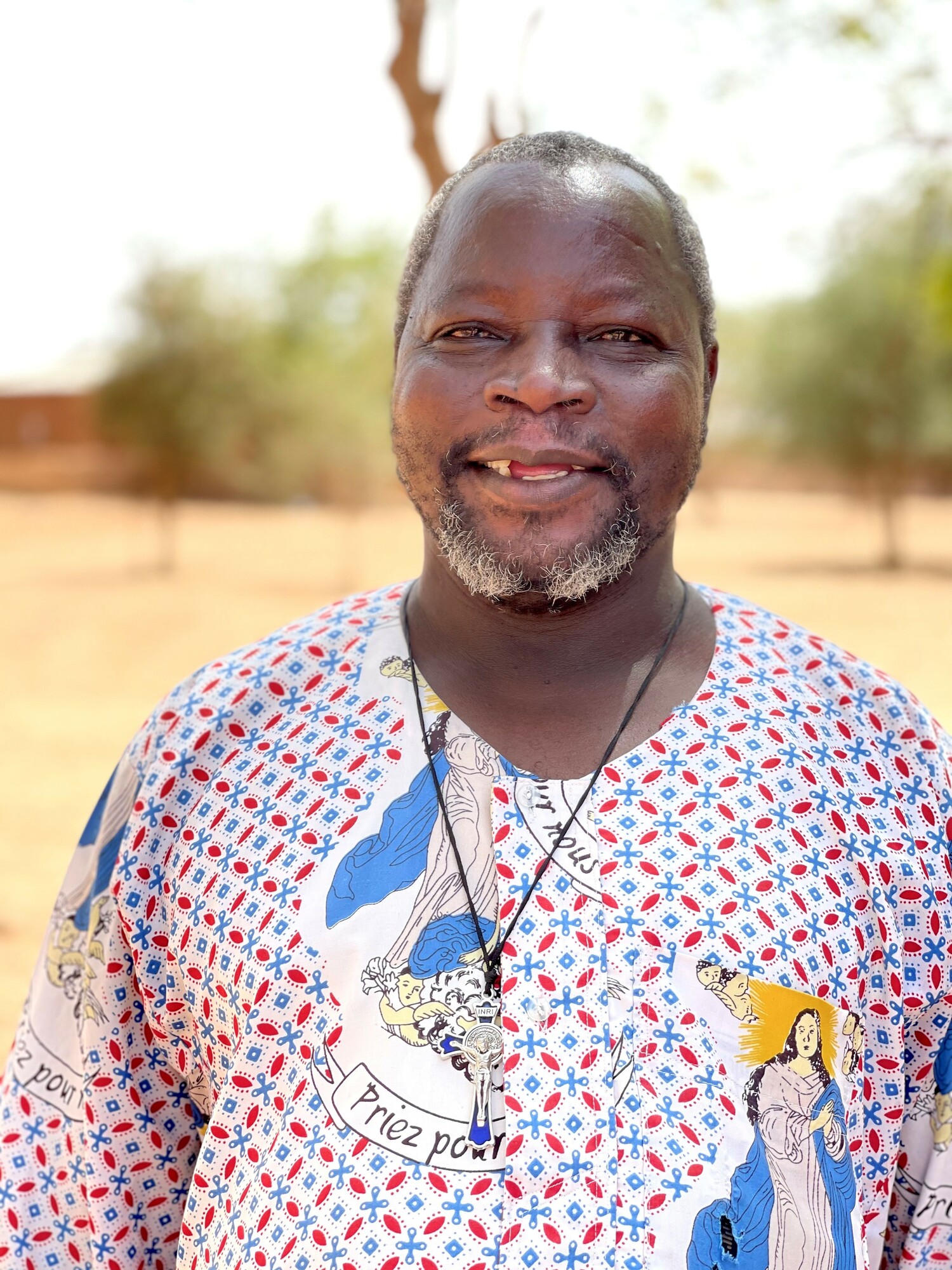
The project uses a model called care groups.
These groups of around 10 neighbor women meet twice a month to support and learn from each other and receive training. Lessons focus on practical ways to keep themselves and their children healthy and how to know when medical care is needed.
Mothers chosen by each group facilitate the sessions and receive more advanced training from local community health workers and midwives who volunteer in the program.
Mothers learn how to make affordable enriched porridge with local millet, peanuts and beans to get their children through the dry season when nutritious fresh foods are scarce. The porridge uses locally available ingredients that can be grown by families to store up for the lean season.
Fathers were also brought into the project to ensure that they prioritized growing and storing ingredients for the porridge and other high-nutrition foods.
Care groups urged mothers to rely on solely breastfeeding for infants under 6 months old. Now, 70% more mothers are giving these infants breastmilk only instead of following traditional practices of supplementing with water, a danger in an area where water is often not clean.
The care groups also promoted the use of improved water sources and better sanitation and hygiene practices. Mothers were urged to prioritize cleaner water for drinking, even if they had to walk farther for it, while close water can be used for washing dishes and hands. This led to a stunning 84% reduction in diarrhea among children involved with the program.
Care groups also connected with government community health workers and clinics to build trust and open access to existing community health services for prenatal, delivery and postnatal care.
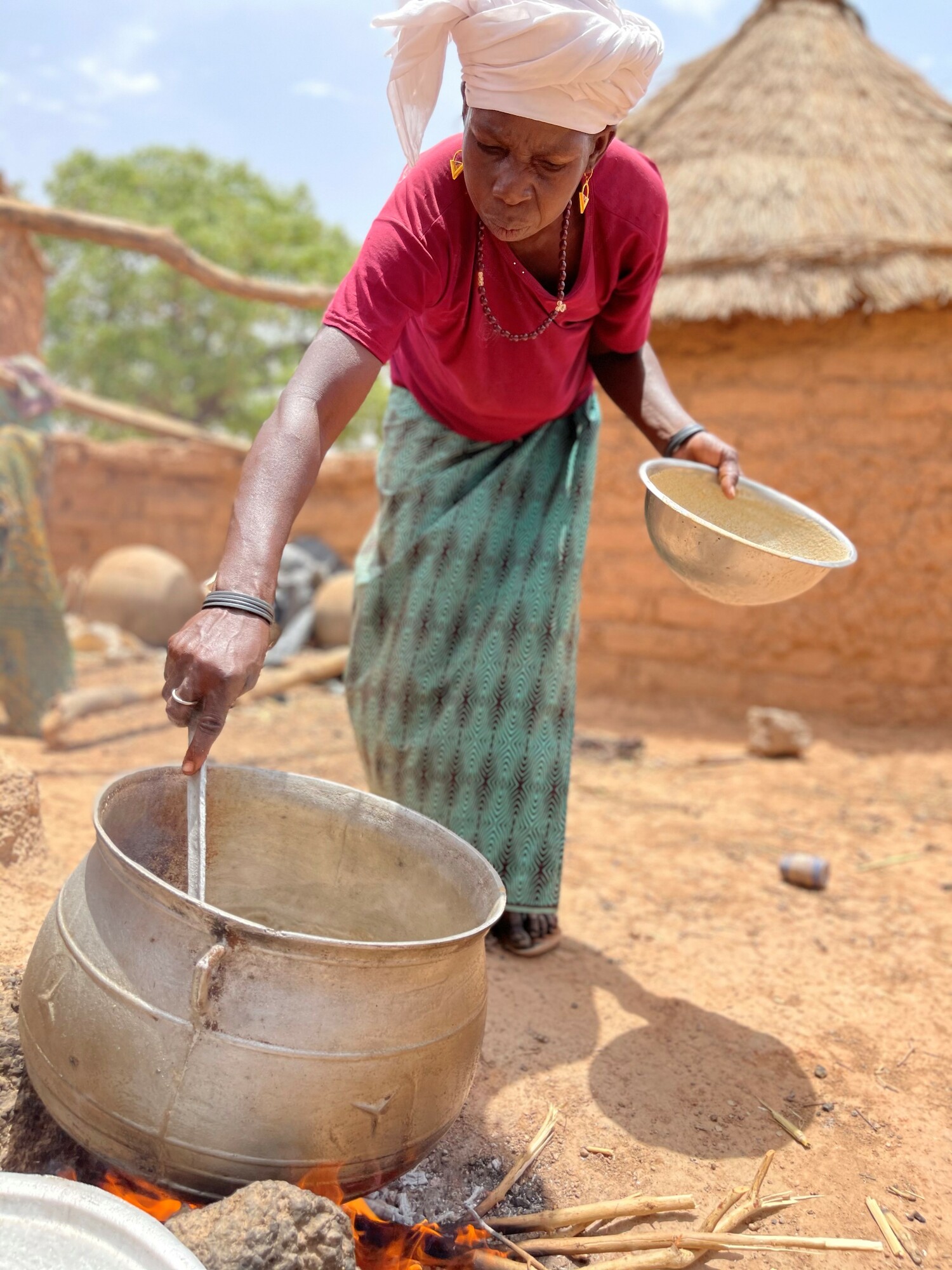
Project volunteers work alongside faith leaders, community health workers and community leaders to promote new health behaviors. This includes encouraging men in the community to support mothers in making changes and ensuring that scarce household resources are set aside for the medical and nutritional needs of mothers and children.
“When we could all see that working together was saving children’s lives, how could we not come together for this?”
Gregoui Sawadogo
Catholic priest
And, in a region where conflict and hunger are still threats, the groups bring people together.
“There was no division among us in this work to help our children,” says Abdoul Nassir Sawadogo, as she fed her daughter, Zounogo, the enriched porridge she learned to make in the program. “There was no ethnic or religious separation, and no difference between displaced and settled people. Every child’s life is treated as equal, and every mother has a place in our group. We are blessed to be together in this.”
This model of community-led maternal and child health is also being used by MCC partners in Somalia, Kenya, Burundi and Nigeria. And the Anabaptist Meserete Kristos Church in Ethiopia will start incorporating this model into its MCC-supported maternal and child health work in 2022.
“The path to peace starts by including everyone in working together to make a community better,” says Chief Tissé. “This project does not solve the insecurity in the north. It cannot. But this work brings people together with respect.
“We all eat from the same plate, and there are many more of us at the plate now. When the food is gone, we are hungry together. So if we want peace, we must work together and share our table.”
Paul Shetler Fast, health coordinator for MCC’s work around the world, visited Burkina Faso to help evaluate ACCORD’s maternal and child health program in May and June 2021. Figures cited in this story were accurate at time of writing in fall 2021.
Top photo: Zalissa Sawadogo and her child Raheem Abdoul are participants in the MCC-supported maternal and child health project with local interfaith partner Action Citoyenne et Communautaire pour la Résilience et le Développement (ACCORD, a French acronym meaning Citizen and Community Action for Resilience and Development) in Niniongo, Burkina Faso.


